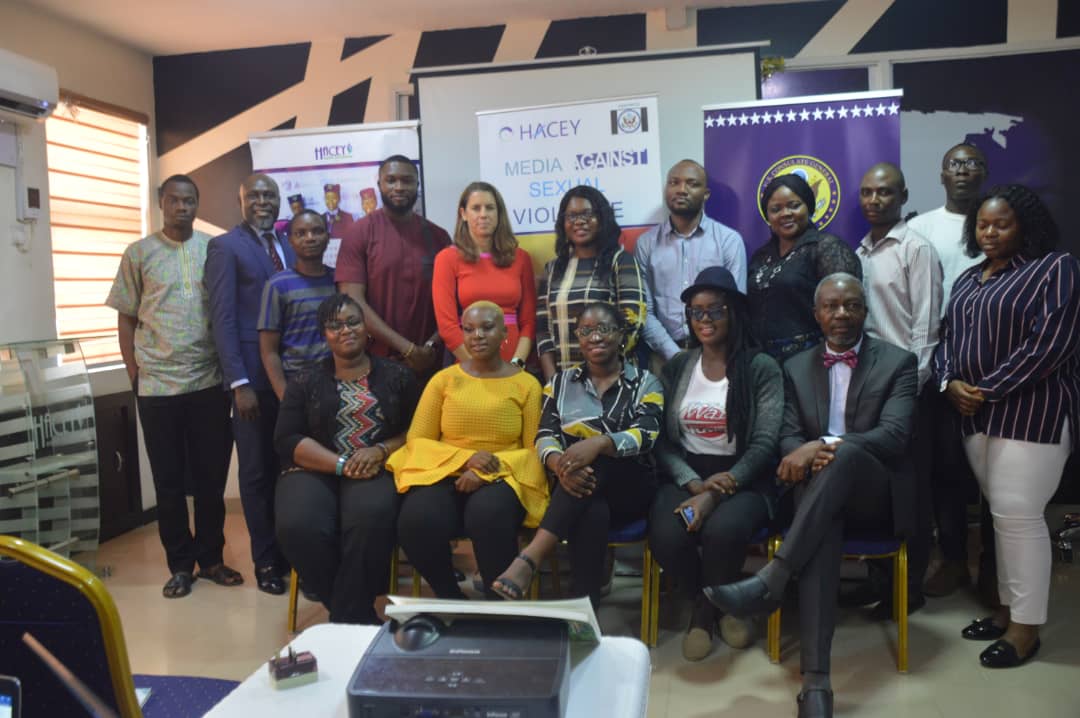
Expert consensus, the prevention of violence against women and sexual assault requires taking action regarding social norms, and the media have a major part to play in shaping these norms, experts have said.
This was disclosed at the launch of the Media Against Sexual Violence program (MASP) organised by the HACEY Health Initiative at its office in Surulere, Lagos in partnership with the United States Consulate in Lagos and other key non-governmental organizations (NGO) on Monday.
The year-long project, which is a U.S. Government-funded through the Alumni Engagement Innovation Fund, and will provide training for 100 media practitioners on how to report on gender-based violence.
[ad]
Speaking at the launch, Deputy Public Affairs Officer Jennifer Foltz noted that preventing and responding to gender-based violence is a cornerstone of the U.S. Government’s commitment to advancing human rights and promoting gender equality and the empowerment of women and girls.
According to her, violence, ranging from sexual, emotional or psychological violence, is often experienced at home by young women and girls and the fact that violence has been accepted as a ‘private affair’ often stops other people from intervening and disallows girls and young women from reporting cases of violence.
She said the United States is ready to promote any course that is geared towards creating more awareness on the danger of sexual harassment and gender-based violence.
Earlier in her remark, Executive Director of HACEY Health Initiative, Rhoda Robinson said the campaign is part of activities commemorating the 16 Days of Activism Against Gender-Based Violence leading up to the International Day for the Elimination of Violence Against Women (IDEVAW) on November 25.
She said the media is expected to play a key role when it comes to the campaign towards eradicating sexual harassment and other forms of violence against women and children.
“Information that is published or broadcast constitutes one of the major channels of influence on social norms regarding sexual assault. By covering a range of events related to sexual assault, the media can help create a greater understanding of what sexual assault is and why it is unacceptable. This approach fosters public attitudes of non-tolerance toward this type of violence.”
A member of the panel, Akeem Jimoh, who is the Executive Director of Development Communication Network, said the purpose is to raise awareness among media professionals and spokespersons about the importance of publishing or broadcasting accurate information on sexual assault that is free of sexism, prejudice and sensationalism, and to support these people accordingly.
He said the majority of cases of sexual violence in Nigeria go unreported, which he attributed largely to fear on the part of the victim of being socially stigmatized or blamed.
Other panellists at the forum argued that Girls can experience violence in schools ranging from bullying, sexual harassment and intimidation and this can affect girls’ ability to continue and complete their education especially when the violence is committed by those in positions of care or authority.
They all, therefore, agreed that the media must go in-depth in their analyses on sexual harassment issue in other to bring more awareness to the issue and also to educate the generality of the populace.
Violence against women and girls is also common in cities, even rural areas, during emergency situations and even in online spaces, it is a rising issue as girls and young women report harassment and abuse and as such girls are pressured to leave online platforms or self-censor in order to avoid abuse. The fear and threat of harassment and violence confine the capacity of girls to lead a free and full life.
[ad]



